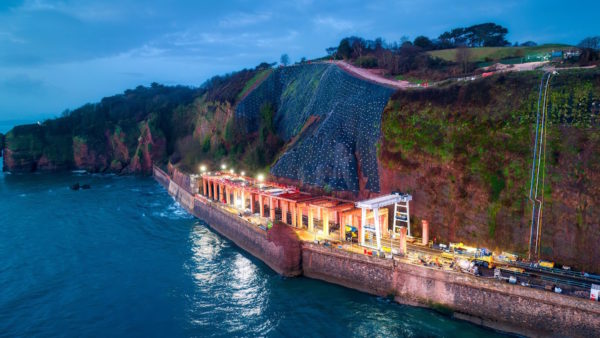
Mandatory digital waste tracking is around the corner – it just might not be the next corner.
Digital reporting is due to replace existing paper-based systems and track the whole construction waste chain – from producer through to recycler or disposal.
Set out under the Environment Act 2021, digital reporting aims to help guide businesses towards a circular economy and help prevent waste crime such as fly tipping.
Tarmac has produced an industry report outlining progress and opportunities of digital tracking for the sector.
The report, Changing mindsets on aggregate reuse and recycling in the built environment, urges companies to start preparing for mandatory digital waste tracking now, and get systems in place.
Under Section 34 of the Environment Act, businesses have a duty of care to deal with waste correctly.
CD&E sectors produce 62% of all waste in the UK and in the EU, more than a third of waste. Statista figures show 138m tonnes of CD&E waste are produced in the UK each year.
From waste to resource
The Tarmac report higlights the need to switch from viewing this material as a waste, to a resource. Tarmac national recovery and recycling manager Hannah Haeffner said: “We want this specialist report to ignite action across the construction and demolition industries.
“Many suppliers, contractors, developers and others working in the built environment are already taking great strides to recover and reuse waste, but we can do more.
“We can’t manage what we can’t measure, and our hope is that digital waste tracking will provide more accurate, more reliable and more up-to-date information, so we can build more informed waste strategies at national level.”
Soft deadlines
But the deadline for mandatory digital waste tracking was the end of this year (2023) this is looking “extremely unlikely”, says Phil Conran, director at consultancy 360 Environmental.
A consultation on the practical aspects of implementing compulsory digital waste tracking was undertaken at the start of this year and closed in April. But the UK government has not yet responded.
Further legislation is needed to make digital tracking mandatory, which usually takes at least 18 months, so we are already out of time. Conran believes it may be introduced on a voluntary basis initially, but it is likely take a few years for it to become compulsory.
Digital questions
It’s also not yet clear how the digital systems will be set up across each of the devolved nations’ individual regulatory bodies, including the Environment Agency (EA), the Scottish Environment Protection Agency, Natural Resources Wales, and the Northern Ireland Environment Agency.
Conran also highlights potential digital tracking compatibility issues. He said: “A lot of companies have their own systems. From the EA point of view, we can’t be sure whether they are going to interact with the waste tracking systems – so whether it’s all automated or running in parallel.”
While the Department for Environment, Food and Rural Affairs (Defra) and the EA have a track record for pushing back deadlines, the direction of travel is still clear.
One organisation developing environmental digital tracking is the Rail Safety and Standards Board (RSSB), which has been working with engineering and environmental consultancy Ricardo.
Data improving sustainability
The RSSB not-for-profit venture has developed a suite of metrics to help Britain’s rail industry measure performance across the circular economy, waste management, and resource management. This is part of a much larger project and not just linked to mandatory waste reporting.
The first phase of the project has identified existing reporting, data flows, and metrics to measure waste management; created a shortlist of metrics with multi-criteria analysis to prioritise according to relevance, feasibility, and practicality; and developed data collection plans.
Core, priority metrics have been selected for the rail industry to adopt, based on the findings from stakeholder interviews.
RSSB and Ricardo are now working with rail firms to pilot implementation of data collection plans and metrics.
RSSB sustainable rail strategy lead Thom Rawson said: “This project has established tangible and measurable metrics for the rail industry’s management of waste and recycling, and represents a significant step forward towards achieving the goal of zero waste.”
Rawson added: “The information gathered using these metrics will be an important element of RSSB’s Sustainable Rail Data Framework, through which we are building a data-led understanding of rail’s sustainability credentials.”
Ricardo head of circular economy, Andrew Dunwoody, said: “The metrics we have identified will enable consistent monitoring and reporting of circular performance across its assets, infrastructure and operations.”
Don’t miss out on BIM and digital construction news: sign up to receive the BIMplus newsletter.












